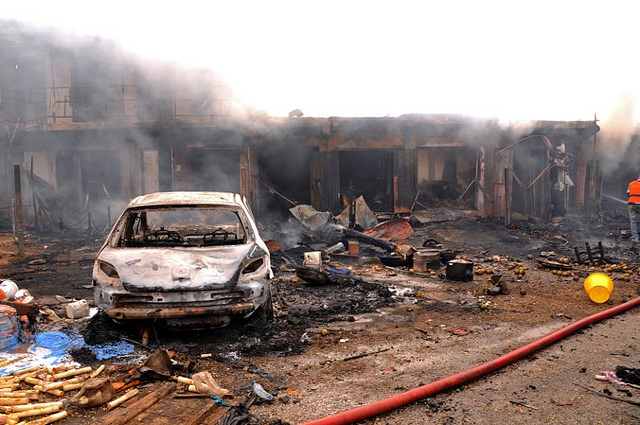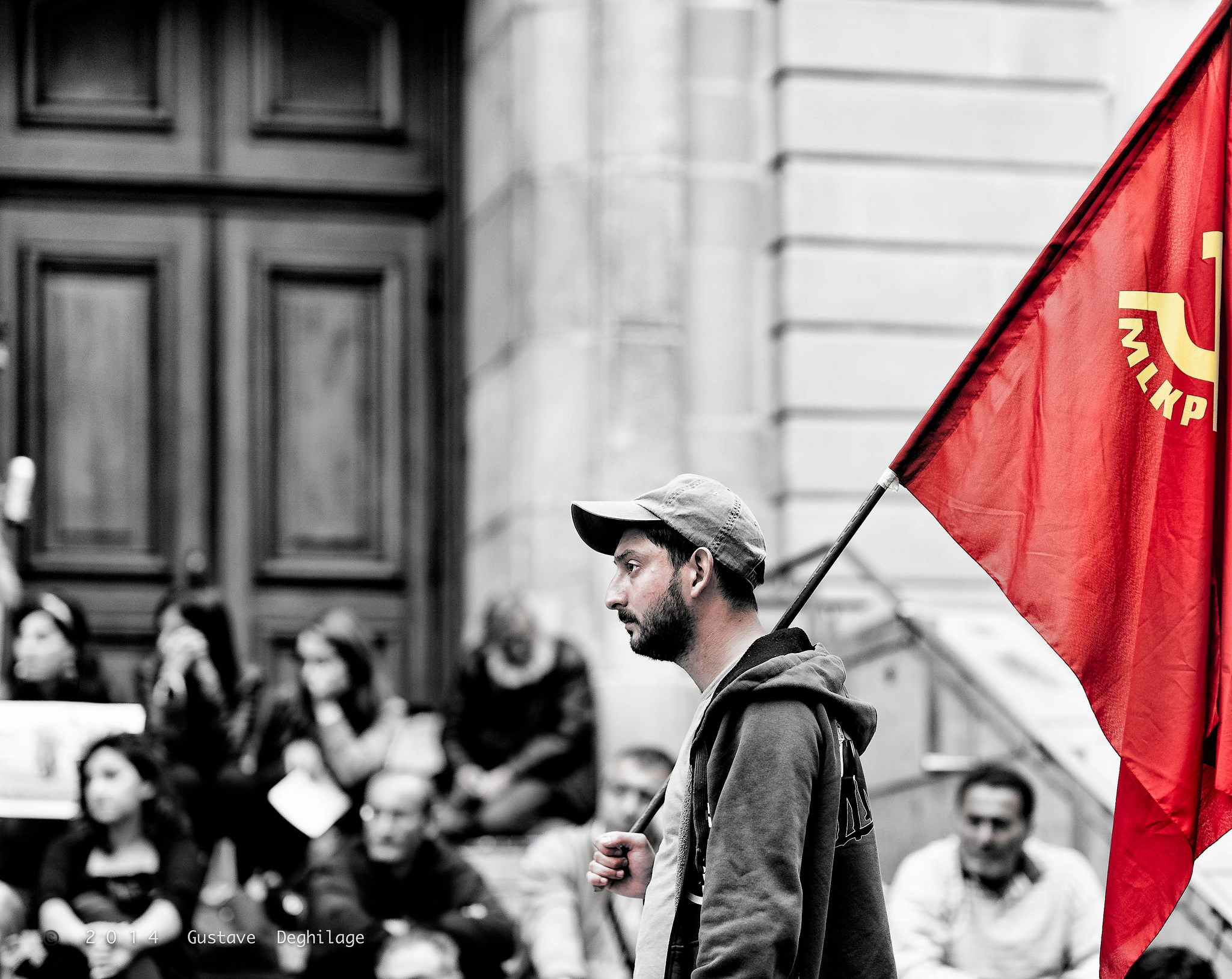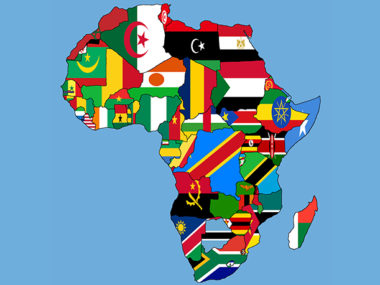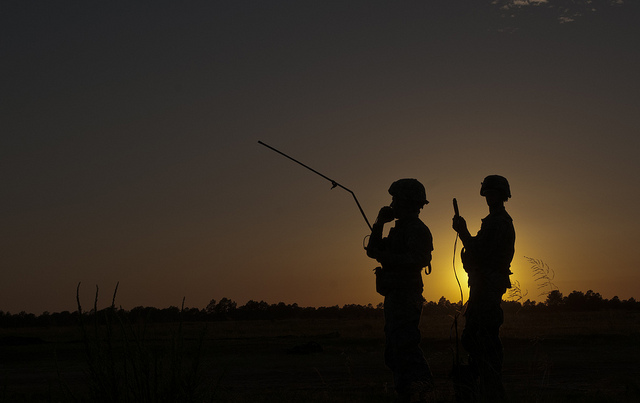Guest post by Rebecca Best
Does adding a terrorist group to the US State Department’s Foreign Terrorist Organization list reduce its violence?
Since 1997, the US State Department has maintained a list of designated Foreign Terrorist Organizations (FTO), or foreign organizations that use terrorism and threaten US nationals or US national security. The United States has designated a wide array of terrorist organizations and groups—including Hamas, FARC, and ISIL–Khorasan—but has refrained from using the designation for others. For example, the United States never designated the Taliban an FTO. Why not?
The purpose of the FTO list is to reduce the threat designated groups pose. It does this by prohibiting interaction with designated groups: providing aid to an FTO is illegal; FTO members can’t enter the US and may be deported if they do; and US banks must freeze FTO bank accounts. Thus, FTO designation can interfere with a group’s ability to attract funding and support, both from individuals in the United States and potential state sponsors. Designation serves both as a lever to focus US institutional attention on a group and as a signal to US allies and adversaries of the United States’ foreign policy interests. This can encourage foreign governments to crack down on designated groups—either to support the United States or to avoid appearing too cozy with a designated group.
The designation clearly hurts some groups. Countries have lobbied the United States to designate their domestic opponents terrorists, both because designation restricts groups’ access to resources and support, and for the political cover it offers for reprisals. After the September 11 attacks, China lobbied the United States and other countries to designate Uighur groups as terrorist organizations, which would give the Chinese government political justification for ramping up oppression of Uighurs. That groups such as Iran’s Mujahedin-e-Khalq and Sri Lanka’s Tamil Tigers have sued to get off the list indicates that designation creates challenges for at least some FTOs.
But FTO designation doesn’t always work. In fact, some countries have lobbied the US government not to designate their opponents terrorists, even in the face of violence. Why would governments resist designation of the very groups attacking them?
One well-established concern is that the FTO designation may hinder peace efforts and undermine the legitimacy of opposition groups. This is the reason the United States never designated the Afghan Taliban, even as it designated the related Haqqani Network and Tehrik-i-Taliban Pakistan.
However, new research shows that opposition to FTO designation may be due to the potential for designation to—counterintuitively—increase terrorist violence and opposition to the regime. In 2012, Nigeria’s ambassador to the United States, Adebowale Adefuye, spoke out against the proposed designation of Boko Haram, writing that such a move would “risk deepening and entrenching the Boko Haram movement, thereby endangering more lives.” Adefuye argued that an FTO designation would hamper much-needed aid flows and fuel opposition to the Nigerian government and the US, aiding Boko Haram. Adefuye was right—in the years immediately following the State Department’s 2013 designation of Boko Haram, Boko Haram’s violence peaked and it aligned itself with the Islamic State.
In our research, Simanti Lahiri and I have found that the effectiveness of FTO designation varies widely depending on characteristics of the designated group. A combination of factors, like group ideology, state sponsorship, and age of the group, impact how successful FTO designation is. For example, FTO designation can reduce the number of attacks and fatalities from nationalist or secular terror groups, and those that do not have a state sponsor. But it has no effect on younger religious terror groups, and can allow older religious terror groups to maintain higher levels of attacks than they would if they were not designated. Moreover, designation may raise the profile of some groups, helping them to attract recruits and prove their bona fides. Brian Phillips has found that when a group operating in a US-allied country, or a country with an alliance portfolio similar to that of the United States, is designated as an FTO, its attacks decline the following year. However, for other groups, FTO designation may have no effect or even slightly increase attacks.
Nigeria has good relations with the United States, and Boko Haram had no significant state support. But Boko Haram is also a religious terror group, and it has been around for a long time—since 2002, when it was founded. Our analysis finds FTO designation has, on average, had no effect on younger religious terror groups’ violence. But as these groups age, FTO designation is associated with more rather than fewer attacks. In 2013, when Boko Haram was designated, it was young enough that our analysis suggests that FTO designation should not have increased its expected attacks. But it may not have been useful in containing the group either. Timing, in other words, is as important as group characteristics and context in enabling the FTO to accomplish its intended goal of reducing violence.
Designating groups as foreign terrorist organizations can stem violence among some groups in some contexts, but it can also backfire. The potential effects on peace talks, much-needed foreign aid, and human rights abuses, are good reasons to be cautious before adding a group to the FTO list, even if it meets the criteria for designation. Designation still runs the risk of generating broader opposition to the United States when it interferes with much-needed aid or is seen to justify human rights abuses against civilians.
Rebecca Best is an associate professor in the Department of Political Science at the University of Missouri – Kansas City.







